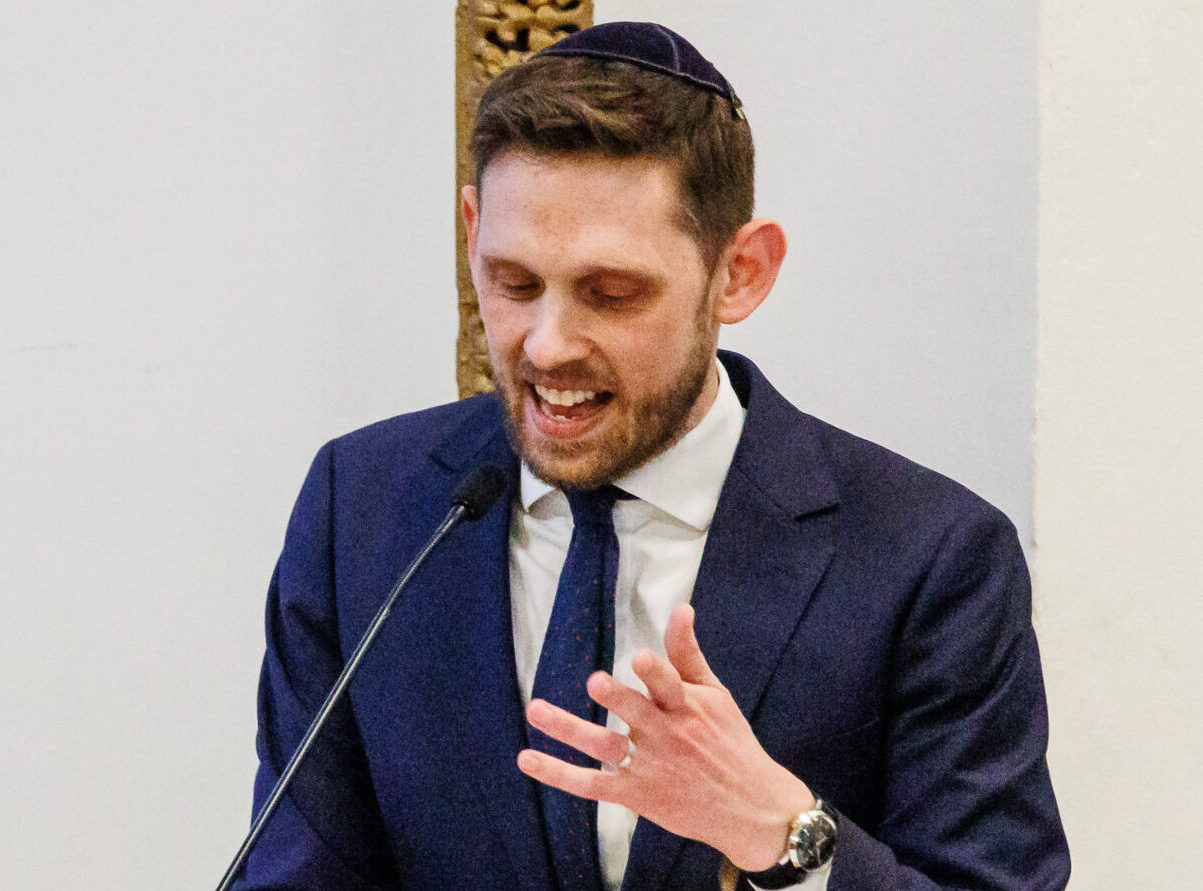I’m thrilled you are exploring Society Hill Synagogue and have found your way to the page of Divrei Torah, words of Torah, which are part of a generations-long Jewish practice of refracting sacred Jewish teachings through the light of our own day and age.
For me, Judaism is an opportunity to nourish ourselves, grounded in the Jewish story: a story that has unfolded throughout the generations, with twists and turns, tragedy and triumph, serving as a source of life to those who engage with it.
The Jewish People are known as B’nei Yisrael: the people who wrestle with the Divine. The name comes from that moment in our tradition in which it is understood that our ancestor Jacob “wrestled with a figure,” a figure understood to be a manifestation of that very Divine Being (see Genesis 32).
That moment produced a legacy of sacred wrestling; grappling; seeking to make meaning of, and find purpose in, our time on earth.
These Divrei Torah are my efforts, in conversation with the community of Society Hill Synagogue, to make meaning and to find purpose, seeking to serve this community, our broader world, and the Divine.
I hope you find meaning in them yourself, and I encourage you to reach out to me if you would like to discuss their contents or to discuss becoming a part of the Society Hill Synagogue community. Welcome!
Do you want to recieve Rabbi Kamesar’s
Divrei Torah in your inbox each week?
Subscribe Now!


Comfort in the Unknown, Faith in the Other
When we celebrate a Bar Mitzvah in our synagogue community, we like to offer, in this weekly email a summary of the teaching offered by the young person in our community who celebrated becoming Bar Mitzvah. This past week it was Xander Segal, who, according

The Sacredness of Our Democracy • Rising Antisemitism
I have long loved election day. The act of casting one’s vote is a truly sacred one to me. Never mind that in Josh Shapiro, Pennsylvania just elected its second Jewish governor in the 21st century (who shares a high school alma mater with my wife, no

The Bare Holiday Landscape Ahead of Us
The dust has settled. After 20 services over a period of 30 days, 2 services every three days for a month, we’ve finally reached a period of relative calm. And then the Phillies had to go and liven things back up for us again. In

Chatan Torah and Kallat Bereshit 2022
So here we are to celebrate our Chatan Torah and Kallat Bereshit. In some ways, it’s a funny name to extend to this honor, to the honor of recognizing two distinguished legacies of service to our synagogue community. It’s a name that goes back centuries to the distinguished

Hallelujah: Breaking Open
Yom Kippur 5783 Time for another song lyric. This one comes from a song by Jewish Canadian singer-songwriter Leonard Cohen that has been, as one writer put it, “repurposed and reinvented by other artists so many times, that it [has become] a latter-day secular hymn”—and

Nose to the Grindstone / Head to The Stars: Cultivating a Relationship with the Beyond
Kol Nidre 5783 Philadelphia’s own Tariq Trotter, lead MC and singer of the hip hop band, The Roots, one of the more successful musical acts to come out of Philadelphia in recent memory and current house band of The Tonight Show, composed one of my

L’Chayim: 18 Jewish Touchstones to Help Navigate the Years Ahead
Rosh Hashanah 5783 It’s been a rough year. Years? Decade? Century? We’re weary. How much longer is this pandemic going to last, we wonder? How many times do we have to turn on the news and encounter another attack on our democracy, or our personal

A Bat Mitzvah Teaching on Curses and Blessings
This past Shabbat we were treated to the celebration of Josie Chrismer becoming Bat Mitzvah. Josie’s Bat Mitzvah parashah portion was Ki Tavo, one of the final portions of the entire Torah. Ki Tavo means “when you enter” or “when you arrive,” the context of which is Moses advising the

What “Open House” Really Means
We’ve affixed the term “open house” to tonight’s celebration. I helped generate that label, but I have to ask the question, could there be a more generic term than “Open House?” Realtors use it when showing off a house for sale; private elementary and high

The Dream-like Shabbat That Was
As I’ve said a number of times now in various contexts, this past Shabbat was, for me, a dream. Friday night was the return of TGIShabbat, and the inauguration of TGISHabbat as a weekly institution at SHS, from September through May each year, where each week we

A Bat Mitzvah’s Teaching on the Downstream Effects of Kashrut
This past Shabbat we celebrated the Bat Mitzvah ceremony of Claire Englander. Claire’s Torah portion falls in the Book of Devarim (Deuteronomy) where Moses is delivering his parting address to the Israelites as they get ready to cross over into the promised land. A central part of

Faithfulness to Our Moments of Clarity • Nina’s Names
This past Shabbat we studied the weekly Torah portion from the Book of Devarim (Deuteronomy) in which Moses is delivering his extended farewell address to the Israelites as they stand at the precipice of the Promised Land, where he will not be joining them. As part of

Lingering with the Divine
This past Shabbat we studied Parashat Pinchas (the Torah portion known as “Pinchas,” named after a religious zealot who practices a cruel form of vigilante justice early in the portion). Parashat Pinchas includes the prescribed musaf offering associated with the different holidays, including Shabbat, that are to make up the

Understanding Lonlieness Through The Prayers of Kabbalat Shabbat
I was honored to be invited to offer a teaching for My Jewish Learning, the web’s leading pluralistic, nondenominational Jewish educational resource, and I did so on Divine Loneliness and Kabbalat Shabbat, a reflection on the idea that God, too, might be lonely, yearning for

I Before Thou?
This past week’s Torah portion, Balak, finds the Israelites continuing their wilderness journey, circuitously making their way to the Promised Land. (And doesn’t it mirror life’s wanderings, finding periods in our lives as something of a wilderness as we make our way towards what we imagine to
